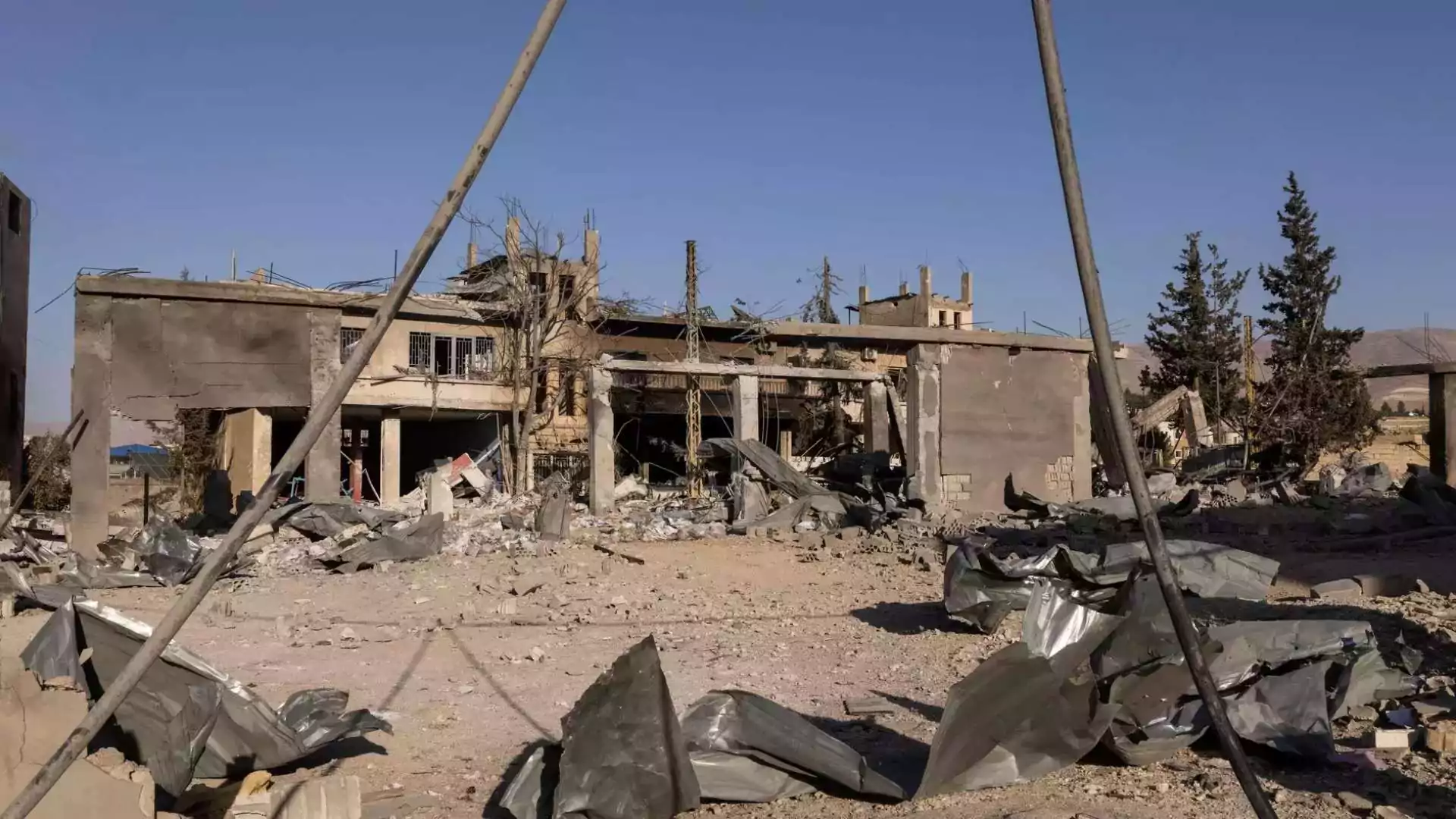United States on Wednesday, urged Israel to refrain from conducting military operations in Lebanon that resemble those in Gaza, following Prime Minister Benjamin Netanyahu’s warning of potential “destruction” akin to that seen in Palestinian territories.
State Department spokesperson Matthew Miller emphasized to reporters, “There should be no military action in Lebanon that resembles Gaza and produces similar outcomes.”
Meanwhile, Israeli military chief Herzi Halevi pledged to continue the intensive bombardment of Hezbollah positions, which has reportedly resulted in over 1,200 deaths since September 23, stating they would not provide “any respite or recovery” to the group.
President Joe Biden advises Netanyahu
In a phone call, President Joe Biden advised Netanyahu to “minimize harm” to civilians in Lebanon, particularly in densely populated areas like Beirut, with the White House noting the two leaders agreed to maintain “close contact” in the coming days.
In a video address to the Lebanese people, Netanyahu stated, “You have a chance to save Lebanon from falling into a long war that will bring destruction and suffering like that in Gaza,” urging them to “free your country from Hezbollah to end this conflict.”
The call between Biden and Netanyahu
According to reports, Hezbollah had accepted a ceasefire with Israel on September 27, the day an Israeli strike killed its leader, Hassan Nasrallah. However, they indicated that Israel’s actions had undermined the ceasefire, supported by Washington and its allies, and that the Lebanese government had not communicated with Hezbollah since Nasrallah’s death.
The call between Biden and Netanyahu was anticipated to address Israel’s response to last week’s missile attacks by Iran. Defence Minister Yoav Gallant stated, “Our attack on Iran will be deadly, precise, and surprising.” Iran launched approximately 200 missiles at Israel, claiming it was retaliation for the killings of Hezbollah’s Nasrallah and Hamas’s Ismail Haniyeh, though most were intercepted by allied air forces or Israel’s defenses.
Biden has warned Israel against targeting Iran’s nuclear program, which could provoke a significant backlash, and against attacking Iran’s oil facilities, which could lead to spikes in global crude prices.
Clashes in Lebanon
Hezbollah reported ongoing clashes with Israeli troops in southern Lebanon, employing rockets to counter Israeli border incursions. In northern Israel, two fatalities were reported due to suspected Hezbollah rocket fire, and Israel’s air defenses intercepted two projectiles aimed at the coastal town of Caesarea.
Lebanon’s health ministry reported at least four deaths from an Israeli strike on a village in the Shouf district, which had largely avoided the recent escalation of bombings. Additionally, an Israeli strike in the southern village of Derdghaiya resulted in the deaths of five civil defense personnel.
Since September 23, Israel has intensified air strikes on Hezbollah strongholds, leading to the displacement of over a million people, according to official estimates. On September 30, Israeli ground forces entered Lebanon in response to Hezbollah’s rocket and artillery attacks that had forced many Israelis in border areas to evacuate.
The Israeli military reported on Wednesday that its forces had “eliminated terrorists during close-quarter encounters and aerial strikes” in the past 24 hours, destroying “100 Hezbollah terror targets.” Operations have expanded beyond border areas to the southern Lebanese coast.
According to the latest reports from the Israeli army, 13 Israeli soldiers have died since the ground operations began, and the air force claimed to have killed a Hezbollah member named Adham Jahout in Syria.
Situation in Gaza
In Gaza, Israel is extending its military operations around Jabalia, where around 400,000 people are trapped, according to Philippe Lazzarini, head of the UN agency for Palestinian refugees (UNRWA). He described the situation as “a never-ending hell,” citing Israeli evacuation orders that repeatedly force people to flee.
Israel has surrounded Jabalia and its refugee camp, shelling the area and obstructing aid deliveries, as reported by the Palestinian civil defense agency. Washington expressed “incredible concern” regarding the humanitarian situation in north Gaza, emphasizing that Israel has obligations under international humanitarian law to facilitate access to food, water, and other aid.
Israel’s ongoing offensive in Gaza has resulted in at least 42,010 fatalities, according to the health ministry in the Hamas-run territory, a figure that the United Nations has deemed credible.
Displacement in Lebanon
Israeli police reported at least six injuries in a stabbing spree across four sites in the central Israeli town of Hadera on Wednesday. In the occupied West Bank, Israeli border police were involved in the deaths of at least four Palestinians in Nablus, as confirmed by Palestinian health authorities and Israeli security forces.
In Beirut, many residents have taken to sleeping on the streets following Israeli airstrikes, with numerous displaced families seen along the city’s seafront.
Read More: Israel Targets Hezbollah Operative Linked To Golan Heights In Airstrike























